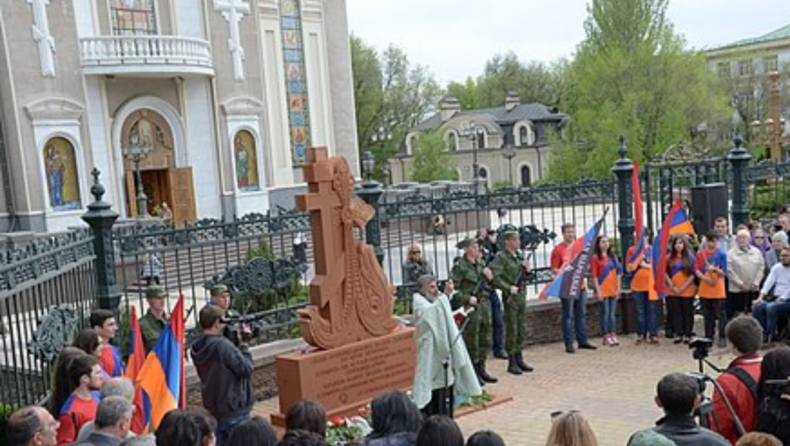For more than a month now, Russia has been waging a war against Ukraine with no peace in sight. The conflict seemed to have begun when Ukraine showed interest in joining NATO and escalated into a full-fledged invasion despite attempts to stop it through negotiation. One of the many rhetorics used by Russia to justify its actions included the claim of a genocide happening in areas of Eastern Ukraine such as Donbas and Crimea.
World Support
However, the tables have turned and many state leaders have now started to recognize Russia’s irredeemable actions as a ‘genocide’, a sensitive term that refers to the deliberate killing of a large number of people from a particular nation or ethnic group to destroy that nation or group. One of the prominent examples of genocide is the killing of Jews by Nazi Germany during the Second World War. In a speech recently, US President Joe Biden accused the Russian state of committing genocide against Ukraine.
His claim received mixed reactions. Canada’s PM Justin Trudeau supported his fellow North American leader whereas France’s President Emmanuel Macron refused to escalate such verbal wars, at a crucial time when he is fighting for his second term in the office. Perhaps most significantly, the Lithuanian parliament has proposed a resolution to “qualify war crimes and crimes against humanity committed by the Russian Federation as genocide of the Ukrainian nation after duly assessing legal circumstances.” The move by the European country is significant as it formally paves way for other countries to do the same. In addition, the Prime Minister of Estonia as well as the President of Colombia have also supported the label and called on actions to be taken against the perpetrator.
Grey Line of Action
However, one must be cautious when using the term ‘genocide’, a word that is synonymous with the Holocaust, when millions of Jews were murdered by Nazi Germany in concentration camps as well as elsewhere. According to the international treaty of the Geneva Convention, state parties are obligated to enforce the prohibition of genocide. However, before the states can act, there has to be an investigation conducted into the possible crime committed. In the ongoing conflict between Ukraine and Russia, it is clear with the help of photographic evidence that the latter has caused great damage to the aggrieved nation. A countless number of people, especially civilians,
have been targeted and murdered brutally. Even residential buildings and monuments have been targeted by missiles.
The recent situations in Bucha and Mariupol have particularly raised eyebrows over the indiscriminate killing of civilians. In another instance that may invoke a reminder of the Nazi era, Russia has been accused of building concentration camps and forcibly deporting hundreds of thousands of civilians to Russia as well as using the same as hostages for labour.
Unfortunately, all these acts of terror may just fall short of being recognized as genocide. While Russia has targeted Ukraine’s national and cultural identities, there is no clear indication of an intentional attempt to destroy the same identity. At the beginning of the war, it seemed as if Vladimir Putin was simply interested in installing a puppet government of his own in Kyiv, a plan that stretched on and has now led to any and desperate attempts to inflict casualties rather than a singular motive to achieve a genocidal agenda.
On February 26, Ukraine applied to the Russian Federation in the International Court of Justice, claiming that the latter had no lawful duty to act against the alleged genocide happening in the territory of Ukraine and further accused Russia of using the pretext to commit genocide against its people. On 16th March, the court ruled that Russia must stop all actions in the territory of Ukraine until a final order is passed. While the order by the court has been ignored, any decision or recognition of genocide will carry a significant impact on the historical image of the nation and might prompt United Nations to take action.
Published by : Gargi Sharma
Edited by : Aaradhana singh













